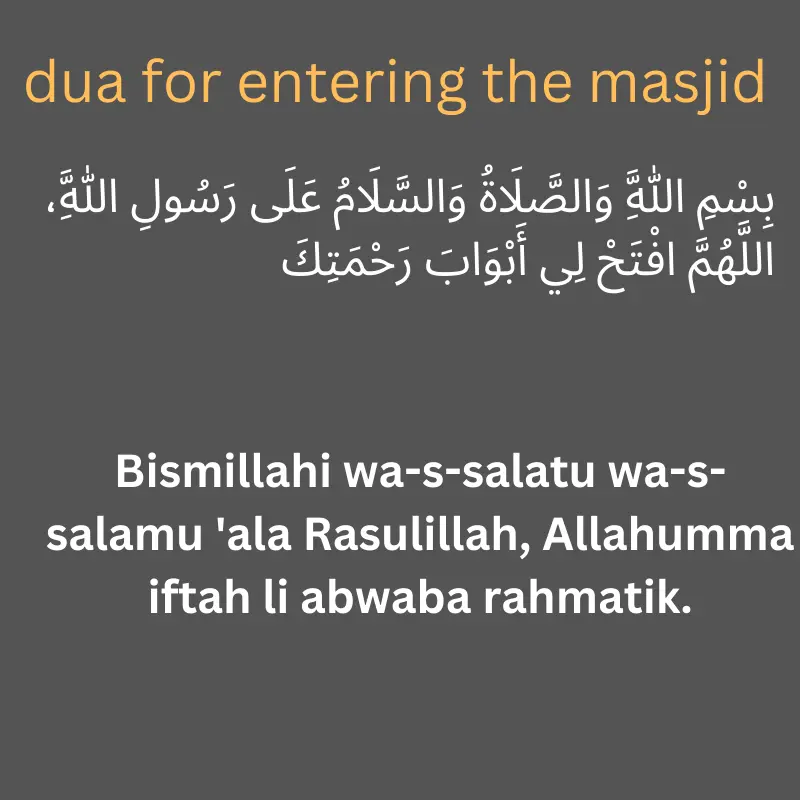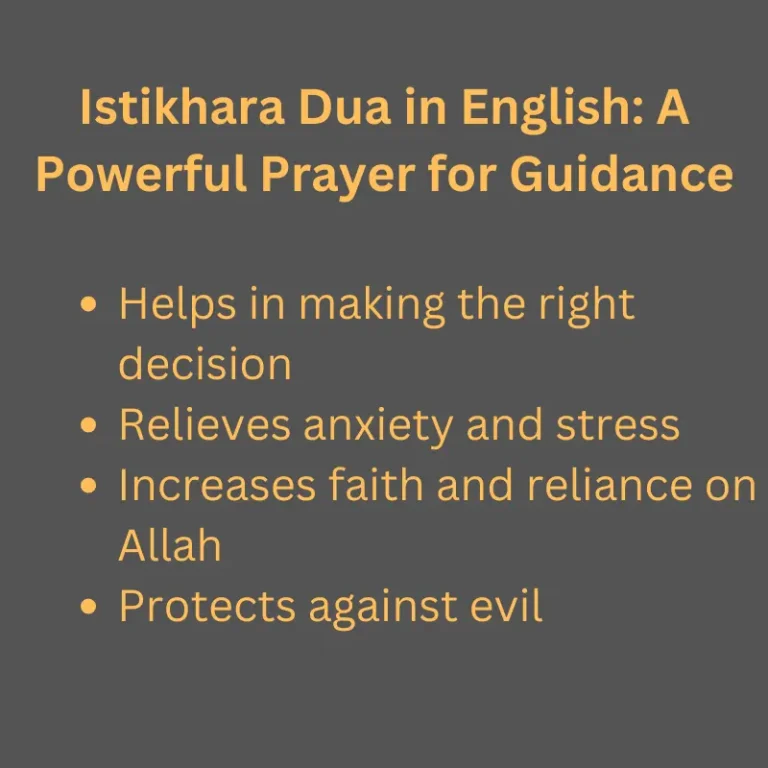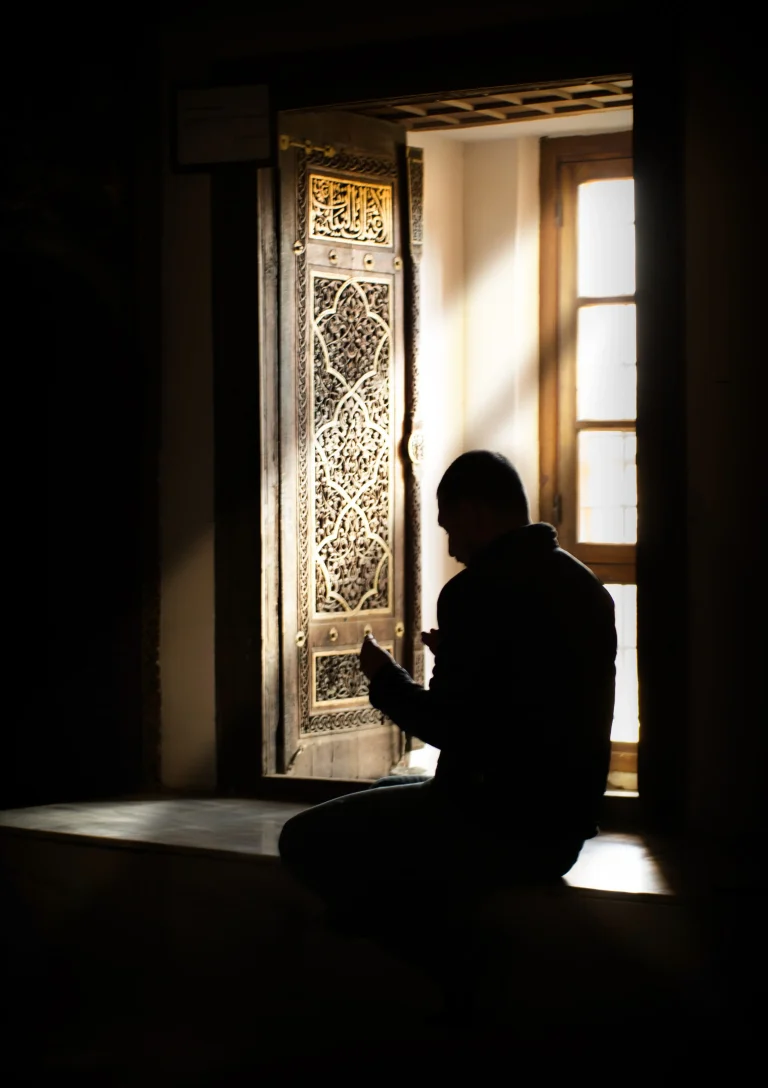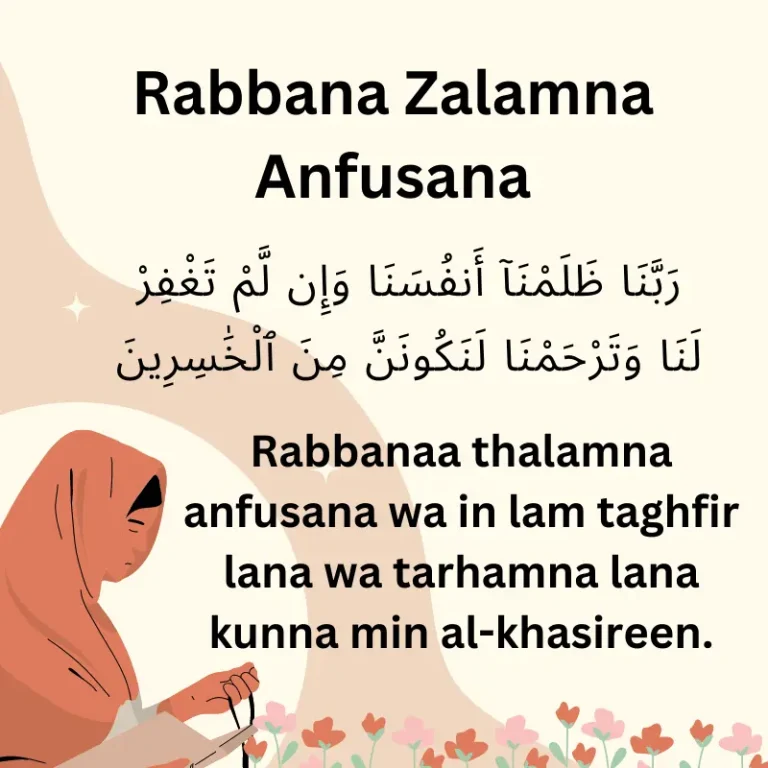Entering the Mosque is a sacred and revered act for Muslims. It is a moment of spiritual connection and reverence towards Allah. When entering the Mosque, it is essential to observe proper etiquette and follow the established customs. Muslims should enter with a humble and pure intention, leaving worldly distractions behind. It is customary to step into the Mosque with the right foot first, reciting the supplication for entering the Mosque (dua).
Dua When Entering the Mosque
بِسْمِ اللَّهِ وَالصَّلَاةُ وَالسَّلَامُ عَلَى رَسُولِ اللَّهِ، اللَّهُمَّ افْتَحْ لِي أَبْوَابَ رَحْمَتِكَ
Dua When Entering the Mosque in Rumi
Bismillahi wa-s-salatu wa-s-salamu ‘ala Rasulillah, Allahumma iftah li abwaba rahmatik.
Dua When Entering the Mosque in English
“In the name of Allah, and peace and blessings be upon the Messenger of Allah. O Allah, open for me the doors of Your mercy.”
There are some variations in the wording and pronunciation of the dua, depending on the school of thought and the language. For example, some scholars add the phrase “wa-a’udhu bi-llahi min ash-shaytan ar-rajim” (I seek refuge in Allah from the accursed Satan) at the beginning of the dua. Some also say “bismillah” instead of “bismillahi.” Moreover, there are different ways to transliterate the Arabic text, which may lead to slight differences in spelling and pronunciation.
Despite these minor variations, the essential meaning and purpose of the dua remain the same. It is a way to seek Allah’s mercy and blessings as one enters His house of worship and affirms one’s intention to perform acts of worship with sincerity and devotion. By reciting the dua, the Muslim also follows the example of the Prophet Muhammad (peace be upon him), who used to say it when entering the masjid and encouraged his companions to do the same.
The Meaning and Significance of Dua for Entering the Masjid
Before delving into the specific dua for entering the masjid, it is essential to understand the broader context of dua in Islam. Dua is an Arabic word that means supplication or invocation. It is a form of worship that involves calling upon Allah, the Creator, Sustainer, and Provider of the universe, for help, guidance, and forgiveness. Dua is an act of faith that reflects one’s trust in Allah’s power and mercy and one’s dependence on Him for everything. As such, dua is an integral part of the Muslim’s life and is recommended in various situations, such as before and after meals, during travel, when seeking knowledge, and so on.
The dua for entering the masjid is a specific supplication that Muslims recite when they enter the masjid. It is not a mandatory act, but rather a Sunnah, which means a recommended practice that Prophet Muhammad (peace be upon him) used to do. The dua is short and simple but contains profound meanings and benefits. By reciting the dua, the Muslim expresses his or her gratitude to Allah for the opportunity to enter the masjid, seeks His permission and blessings, and affirms his or her intention to worship Him sincerely.
The Etiquettes of Entering the Masjid
Apart from reciting the dua for entering the masjid, there are some etiquettes that Muslims should observe when entering the masjid and leaving the mosque. These etiquettes are based on the Prophetic traditions and aim to enhance the sanctity and reverence of the masjid as a place of worship and spiritual nourishment. Some of these etiquettes are:
- Wearing clean and modest clothes: Muslims should dress respectfully and avoid wearing tight, revealing, or flashy clothes that may distract others or offend the sanctity of the masjid.
- Removing shoes: Muslims should take off their shoes before entering the masjid, as it is considered a sign of humility and cleanliness. They should also avoid placing their shoes in a disorderly or obstructive way.
- Walking calmly and quietly: Muslims should enter the masjid with a calm and dignified demeanor, avoiding any loud or disruptive behavior. They should also avoid stepping over other people or their belongings.
- Greeting the masjid: Muslims should say “Assalamu ‘alaikum” (peace be upon you) when entering the masjid, as it is a way to acknowledge and respect the presence of the angels and the fellow worshippers.
- Making intention: Muslims should make a sincere intention to perform the acts of worship they came for, such as praying, reciting Quran, attending a lecture, or seeking knowledge.
- Sitting in the front rows: Muslims should try to sit in the front rows of the masjid, as it is a recommended practice that reflects one’s eagerness to learn and participate in the congregational prayer.
By observing these etiquettes, Muslims can create a peaceful and spiritual atmosphere in the masjid that facilitates their connection with Allah and their fellow worshippers.
Common Mistakes to Avoid When Entering the Masjid
Despite the importance of observing the etiquettes of entering the masjid, many Muslims unknowingly commit some common mistakes that may diminish the sanctity and respect of the masjid. Some of these mistakes are:
- Talking loudly or engaging in idle talk: Muslims should avoid talking loudly or engaging in idle talk in the masjid, as it distracts others and undermines the solemnity of the place. If they need to communicate, they should do so in a low voice and with relevance.
- Using mobile phones or other electronic devices: Muslims should avoid using mobile phones or other electronic devices in the masjid, as it not only distracts them but also disturbs others who may be praying or reciting Quran. If they need to use the phone, they should do so outside the masjid or in a designated area.
- Eating or drinking: Muslims should avoid eating or drinking in the masjid, as it is not appropriate to do so in a place of worship. They should also avoid bringing food or drinks that have strong smells or may cause a mess.
- Showing disrespect to the masjid: Muslims should avoid showing disrespect to the masjid or its symbols, such as the Quran, the prayer rug, or the mihrab. They should also avoid any behavior that may damage the masjid or its property.
By avoiding these mistakes and following the etiquettes of entering the masjid, Muslims can enhance their spiritual experience and demonstrate their love and respect for the masjid as a sacred space.
Entering the masjid is a significant act of worship in Islam that requires proper etiquette and spiritual preparation. One way to enhance the spiritual dimension of entering the masjid is to recite the dua for entering the masjid, which affirms one’s intention to seek Allah’s blessings and guidance in the masjid. Additionally, observing the etiquettes of entering the masjid, such as wearing clean and modest clothes, removing shoes, walking calmly and quietly, greeting the masjid, making intention, and sitting in the front rows, can create a peaceful and spiritual atmosphere in the masjid that facilitates one’s connection with Allah and fellow worshippers.
On the other hand, avoiding common mistakes, such as talking loudly or engaging in idle talk, using mobile phones or other electronic devices, eating or drinking, and showing disrespect to the masjid, can maintain the sanctity and reverence of the masjid as a place of worship and spiritual nourishment.
As Muslims, we should always strive to follow the example of the Prophet Muhammad (peace be upon him) in our worship and conduct, and the etiquettes of entering the masjid are a practical manifestation of this principle. By observing these etiquettes and reciting the dua for entering the masjid, we can fulfill our spiritual duty and attain the blessings and guidance of Allah.
Is it mandatory to recite the dua for entering the masjid?
Reciting the dua for entering the masjid is not mandatory, but it is a recommended practice based on the Prophetic traditions. Muslims can also make their own supplications or remembrance when entering the masjid.
Can women enter the masjid?
Yes, women can enter the masjid for worship and other Islamic activities. However, there may be some specific rules and arrangements for women’s access and seating in the masjid.
Can non-Muslims enter the masjid?
Yes, non-Muslims can enter the masjid for cultural, educational, or interfaith purposes, but they should respect the sanctity and rules of the masjid and avoid any behavior that may offend the worshippers or the religion.
What is the significance of the front rows in the masjid?
Sitting in the front rows of the masjid is a recommended practice based on the Prophetic traditions, as it reflects one’s eagerness to learn and participate in the congregational prayer. It also allows one to have a clearer view of the imam and hear the recitation of Quran more effectively.
Can Muslims correct the mistakes of others in the masjid?
While it is important to maintain the sanctity and etiquette of the masjid, Muslims should avoid causing any discomfort or conflict when correcting the mistakes of others. It is better to advise them politely and privately or seek the guidance of a knowledgeable person or the masjid administration.








